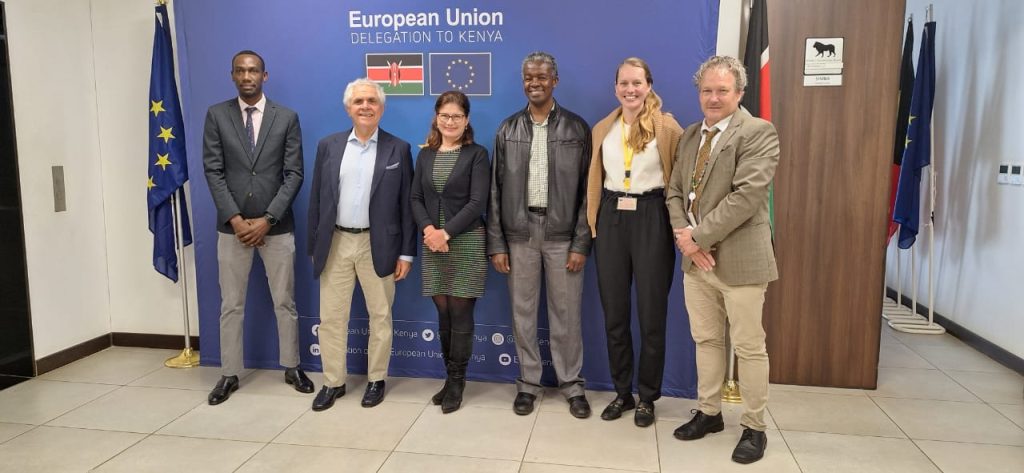
Africa Climate and Energy Nexus (AfCEN) Meets EU Delegation in Kenya: A New Chapter in Scaling Climate-Positive Growth.

A high-level meeting in Nairobi between the Africa Climate and Energy Nexus (AfCEN) and the European Union Delegation to Kenya has sparked optimism for a deepened partnership aimed at advancing sustainable development across Africa.
Hosted by the EU Ambassador to Kenya Henriette Geiger, the session focused on aligning African ambition with European resources to drive climate-positive growth through investments in sustainable infrastructure, capital mobilization, and digital innovation. This collaboration marks a pivotal moment for both parties to co-lead on transformative projects that address Africa’s pressing development needs while contributing to global climate goals.
In the course of the discussions, areas of shared interest began to emerge — from project pipeline visibility and investment mobilisation, to opportunities for collaboration with local business chambers. The conversation also touched on how digital infrastructure, including data centres, could play a role in Africa’s broader climate and energy ambitions.
The European Union, already Africa’s largest development partner, has pledged €150 billion by 2027 through its Global Gateway Africa–Europe Investment Package, targeting critical sectors such as infrastructure, energy, digital innovation, and education. This commitment aligns seamlessly with AfCEN’s mission to catalyze African-led solutions.
Africa’s development trajectory stands at a critical juncture. Over 600 million Africans lack access to electricity, with rural areas particularly underserved. By 2050, Africa’s population is projected to reach 2.5 billion, with more than half living in urban centres, driving unprecedented demand for infrastructure, mobility, energy, and food. The African Development Bank estimates that Africa requires at least $3 trillion in climate investment by 2030 to meet these needs sustainably. Yet, the continent currently receives only about 3% of global climate finance. AfCEN is positioned to bridge this gap by identifying high-potential opportunities, matchmaking capital, and developing a pipeline of transformative, continent-wide projects.
AfCEN focuses its efforts across seven key areas: green industrialization and mineral value addition; renewable energy expansion through solar mini-grids and regional transmission; climate-smart agriculture and land-use reform; urban resilience, including sustainable cooling, housing, and public transport; carbon markets and climate finance systems; and digital innovation—such as AI-driven climate tools and hackathons that tap into Africa’s vibrant tech talent. Through its role as a connector, catalyst, and convener, AfCEN is helping to turn African-led ideas into scalable solutions for global challenges.
The dialogue with the EU presents a promising avenue to explore co-leadership in advancing Africa’s climate and development goals. AfCEN’s transformative agenda, paired with the EU’s investment frameworks and diplomatic networks, could—if aligned—help accelerate climate-smart infrastructure, channel capital toward locally owned and women-led enterprises, strengthen data systems for impact tracking, and support Africa’s green industrial emergence. The Nairobi meeting marked more than a diplomatic exchange; it reflected a growing convergence of priorities and a shared interest in shaping a more sustainable, inclusive future for the continent.
The meeting opened the door for continued engagement, with follow-up conversations anticipated at both technical and ministerial levels. As momentum builds toward COP29 and the Africa Climate Summit 2025, partnerships grounded in shared priorities and mutual ambition will be key to unlocking scalable, climate-positive outcomes for the continent.
© Africa Climate and Energy Nexus. All Rights Reserved
2025